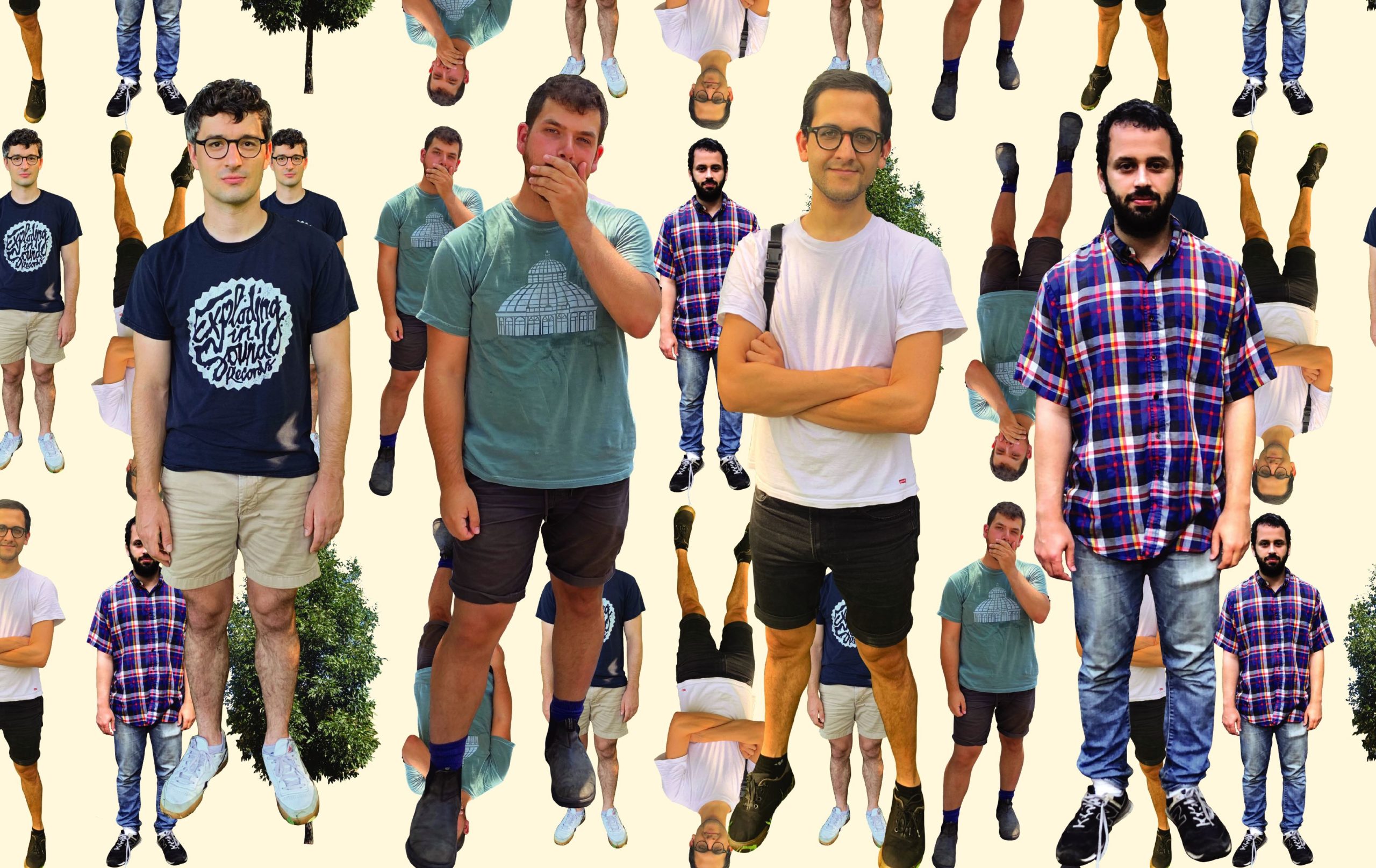This article appears in FLOOD 11: The Action Issue. You can purchase the magazine here. All proceeds benefit NIVA (National Independent Venue Alliance) and their efforts to save independent venues across the United States. #SaveOurStages
BACKSTORY: Former indie rockers who left the scene to pursue full-time activism and law school
FROM: Brooklyn and Washington, D.C., via Boston
YOU MIGHT KNOW THEM FROM: Being the cult Boston DIY sensation Krill, but with an added member and less bombastic songs
NOW: Keeping music as a side passion while remaining focused on activism
Nearly a year and a half after Krill stopped being “forever,” the Boston rock trio unexpectedly resurfaced for one final Facebook post. “The indie rock world…often fails to spur real action,” read the post. Immediately before that: “We’ve gone to a lot fewer shows this year and a lot more organizing meetings. Join us.”
It wasn’t virtue signaling. Since Krill disbanded, frontperson Jonah Furman and drummer Ian Becker have respectively devoted their lives to labor activism and work with state housing departments. Guitarist Aaron Ratoff is close to finishing law school and looking for work as a civil rights lawyer. All three Krill members—who have reunited as Knot, along with new member Joe DeManuelle-Hall—ultimately followed the Facebook post’s imperative to “make political engagement and anti-capitalism a central part of your life.”
Now, Knot’s members are doing both that and making music—in fact, Furman first met DeManuelle-Hall through labor organizing. “I asked one time if [Jonah] wanted to play music,” DeManuelle-Hall says, “and that organically grew from there.” Or, as Furman sings in his signature nasal, ready-to-burst sneer on “Fallow,” the first track on Knot’s self-titled debut album, “Now I’m back, and now I’m ready to return.”
Although this return to music after years of activism could easily lead to explicitly political art, Furman stresses that Knot is “not a polemically political record.” Instead, it’s “an analysis of what it means to live an explicitly political life,” whether as an activist or otherwise. “A lot of people, after Trump was elected, were like, ‘We have to think politically,’” Furman says. “Starting to think politically is an interesting experience as a person…it changes how you relate to the world.”
Throughout Knot, Furman grapples with this mental and social shift over riffs as acidic and wiry—but nowhere near as spastic or mosh-ready—as Krill’s. On “Justice,” he reflects on how his activist work has reshaped his thoughts about justice and power. He says the song details “transitioning to an idea of power as [something] we [should] want,” instead of fear, as a tool for effecting social change—it’s less a teaching moment than it is a series of thoughts about another series of thoughts. “Foam” likewise details the way a political mind fluctuates: “I believe in people’s power,” Furman sings over mildly caustic, midtempo arpeggios, “but not at this late hour, personally.”
“The world is edging on insane revolution and you’re like, ‘My band is politics!’ That feels dumb. I feel concerned about the idea of positioning ourselves as…the band of the movement. It is not at all true.” —Jonah Furman
Knot is mostly musings of this sort instead of sociopolitical manifestos (save “I Live in Fear,” in which Furman pens fervent satire from the perspective of “some racist-whatever Trump person”). That’s by design. “There’s an uncanny valley,” Furman says, when “the world is edging on insane revolution and you’re like, ‘My band is politics!’ That feels dumb.” Put more succinctly: “I feel concerned about the idea of positioning ourselves as…the band of the movement. It is not at all true.”
Where Furman leans toward cynicism, Ratoff and Becker find silver linings. “I’ve tried to at least hope that someone is excited about this band, and this is giving them…a thing that they like because it’s such a difficult time for everyone,” Ratoff says. Becker posits that the conversations Knot starts about what it’s like to think politically could actually make a difference in indie-rock spheres: “After COVID, in whatever new reality we’re all dealing with,” he says, “maybe there’s an opportunity to restructure music scenes.” A band of full-time activists and organizers seems pretty well-qualified for the task, and Becker says that, “to the extent that we can support that in any way, I’m sure we will.” Join them. FL







